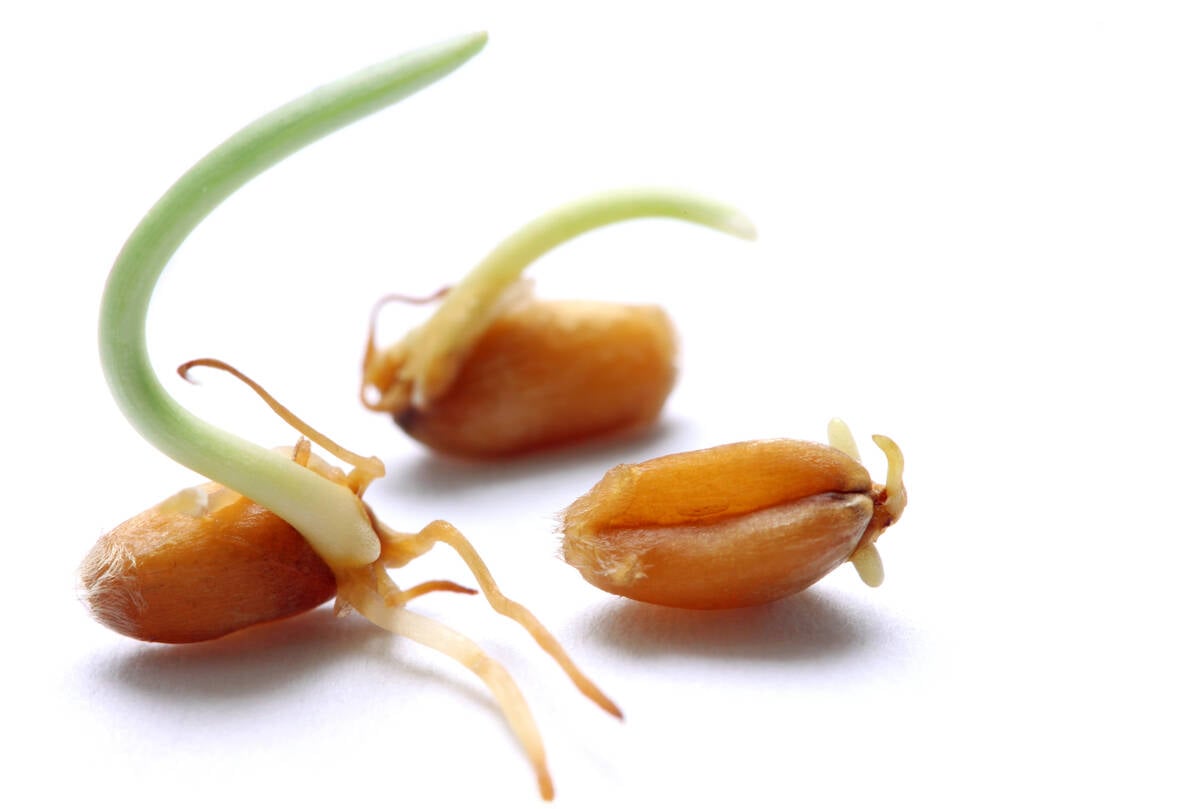VICTORIA – A B.C. poultry farmer is slicing costs for three abattoirs thanks to the opening of his slaughter waste composting facility, which means no more long-distance trucking of meat scraps to Calgary.
In mid-January, Spa Hills Farm owner Jake Mitchell opened the compost operation in the Salmon Valley, between Falkland and Salmon Arm, where he expects about 1,300 tonnes of non-specified risk material will be accepted annually.
Under a five-year contract, Mitchell will charge Riverside Meats in Salmon Arm, Kam Lake View Meats in Kamloops and Enderby’s Valley Wide Meats eight cents per pound to dispose of their waste, with free pickup, versus the 8.5 to 12.5 cents per pound being paid to have it handled in Calgary, Mitchell said.
Read Also

Manitoba farmers fight sprouted wheat after rain
Rain in mid-September has led to wheat sprouting problems in some Manitoba farm fields.
“There’s a need for this,” said Mitchell, who with his father Ron and brother Josh, operate a 50,000 bird broiler operation on their 140 acre-farm. “It didn’t make sense to truck the stuff to Calgary. Now, the ecological footprint will be way less.”
The B.C. Cattlemen’s Association welcome the local solution.
“The cost savings will be passed back to those who use the facility,” said BCCA spokesperson Elaine Stovin.
Having a nearby option for waste disposal will help the three abattoirs stay profitable, which is good for the beef industry as a whole, she added.
At Spa Hills, composting takes place inside a large, concrete-floored building. Inside are six aeration bins, each one with time and temperature monitoring systems.
Biofilters are used to control odour.
Leachate is collected, stored and then put back into the compost for needed moisture, Mitchell said.
The bins operate aerobically, which means the available oxygen produces a faster, less smelly breakdown than anaerobic composting.
When the slaughterhouse waste rrives it’s put into a bin and blended with straw, wood waste and chicken manure from the Mitchells’ farm. Mixed up, it sits in one bin for four weeks and then is transferred to a second bin for two final weeks.
After six weeks the compost is ready to be put on the Mitchells’ grain fields as a chemical-free compost, safe for use on food, Mitchell said.
Glad to have the fertilizer for his fields, Mitchell said he won’t be selling the product.
The operation hasn’t been without its detractors.
A core group of about a dozen people, who live near Spa Hills Farm, are concerned about the smells that will be produced at the compost facility. They are also worried that the plant will lower property values.
“The people that have been complaining are the same ones who complain when we spread chicken manure,” Mitchell said.
The opponents collected 150 signatures on a petition that opposed the facility. They also have a website called Safe Waste. Attempts to contact them were unsuccessful.
Noting that a farm has operated at the Spa Hills site since at least 1907, long before non-farming adversaries arrived, Mitchell said a lot of farmers back the facility “100 percent. They realize there’s a need for this.”
While it was being built, B.C.’s ministry of the environment, in charge of compliance, visited the farm four times. Environment officials are welcome to inspect the operation at any time, Mitchell said.
“We have an open door.”
The plant is built to the Organic Matter Recycling Regulation, which would do an environmental impact assessment only if production exceeds 20,000 tonnes per year.
Mitchell said the Spa Hills facility won’t surpass that level, which means an environmental impact assessment isn’t necessary.
Money for the facility came from Investment Agriculture Foundation of B.C., an industry-led, non-profit group which provided $190,000 for the $485,000 project, originally budgeted at $379,500.
Mitchell said he paid the remainder of the costs.
The Investment Agriculture Foundation administers the livestock waste tissue initiative, a onetime, $5 million contribution from the provincial government to help slaughterhouse facility operators, renderers and meat processors dispose of specified risk material and other slaughter plant waste
issue.














